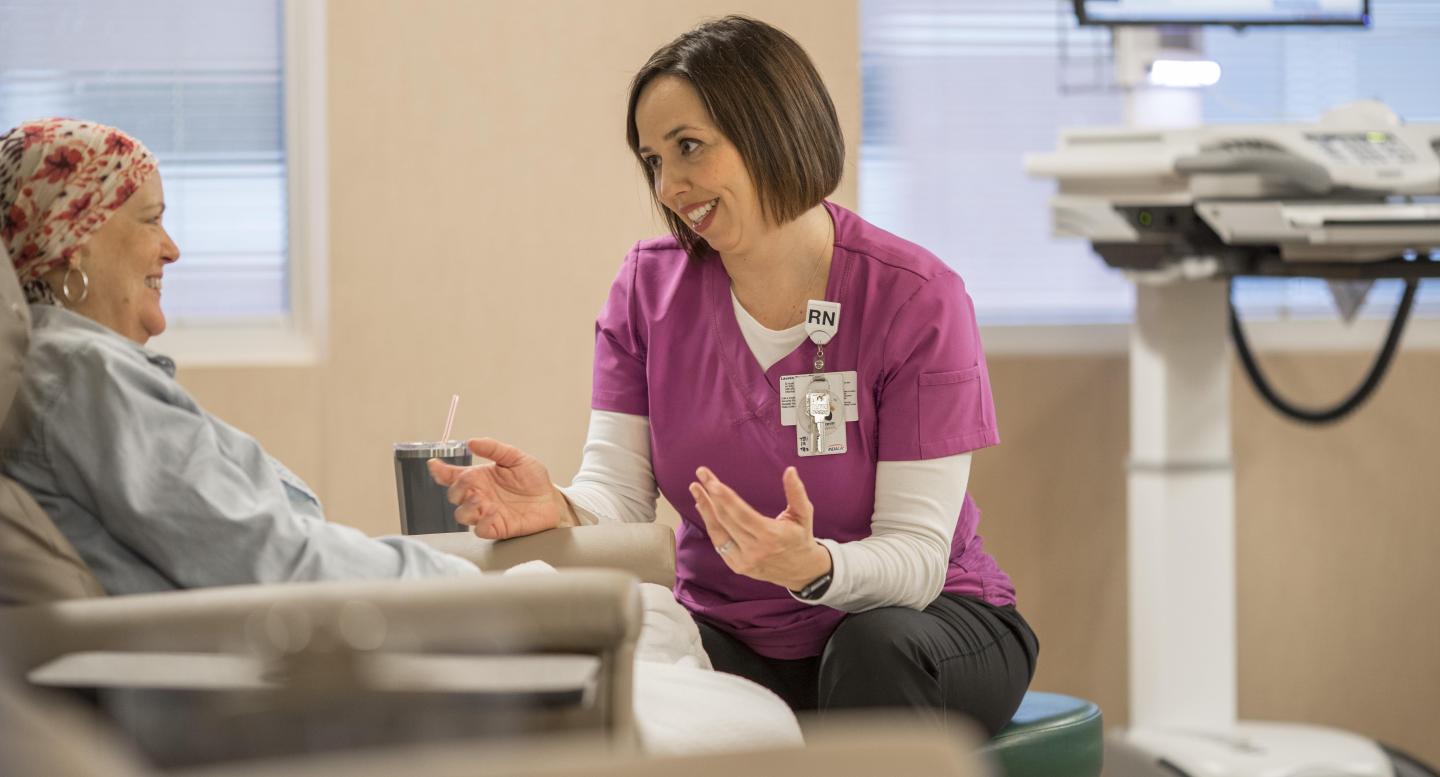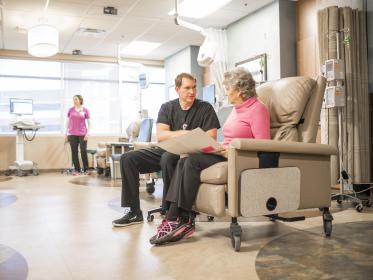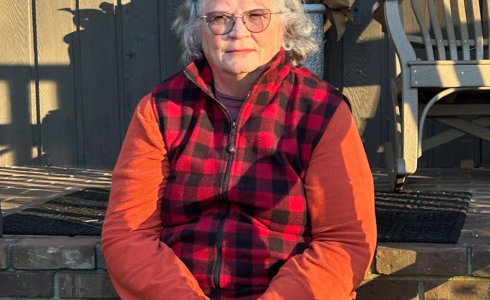What is Chemotherapy for Cancer?
Chemotherapy is the use of drugs to stop the growth of or destroy cancer cells. The type of chemotherapy given is dependent on the type and stage of cancer. Today there are over 100 drugs available to treat cancer. A team of medical oncologists at the University of Tennessee Medical Center Cancer Institute plan and manage the administration of chemotherapy.
All chemotherapy medication orders are reviewed and mixed on site by an oncology pharmacist and administered by nurses with a chemotherapy certification. The medical oncologist and pharmacist are available during administration of the chemotherapy to consult if necessary with members of the oncology team. This level of service is not offered at all chemotherapy centers. Patients who need this treatment will find caring and experienced oncology nurses who are dedicated to their comfort and medical care.
There are many different kinds of chemotherapy and several ways to receive the treatment. Chemotherapy may be given intravenously (IV), orally, as an injection, or by other methods. Chemotherapy can include a combination of drugs with a wide variety and severity of side effects.
Side Effects of Chemotherapy
Chemotherapy medicines work best on cells that divide often to make new cells. This is typical of most cancer cells. However, some normal cells—including those found in the blood, hair, and the lining of the gastrointestinal tract—also divide quickly. Chemotherapy can also damage or destroy these healthy cells.
When this damage occurs, there can be side effects. Side effects of chemotherapy depend on many things, including the type of cancer, and which drugs are being used. Each patient reacts differently to these drugs. Some newer chemotherapy drugs that target cancer cells may cause fewer side effects.
The specific side effects associated with a chemotherapy treatment plan will be discussed with the physician prior to the initial treatment. It is very important that the patient discuss any symptoms or problems with the healthcare team as this is crucial for the management of side effects during chemotherapy treatments. Some of the more common side effects are:
- Gastrointestinal problems (such as nausea/vomiting, diarrhea/constipation)
- Bone marrow suppression
- Bleeding due to low platelets
- Anemia due to low number of red blood cells
- Infection due to a low number of white blood cells
- Dry mouth, mouth sores, or swelling in the mouth
- Nerve damage
- Infertility
- Skin problems
- Hair thinning/loss
- Fatigue
Oncology Pharmacists
In our Chemotherapy Infusion Center, we have oncology pharmacists who specialize in drug therapies for treating cancer and managing cancer-related and drug-related adverse events. Oncology Pharmacists provide evidence-based, patient-centered medication therapy management and direct patient care for individuals with cancer, including treatment assessment and monitoring for potential adverse drug reactions and interactions.
Our oncology pharmacy team includes Board Certified Oncology Pharmacists, which represent a high level of expertise in oncology pharmacy and signify they have met a rigorous standard above and beyond the usual training for pharmacists. Oncology pharmacists have the training and expertise that places them in an optimal position to provide medication management services across the care continuum (from assessment and recommendations for chemotherapy treatment, medication management, symp¬tom management, and supportive care management). They are viewed as the “cancer medication experts” and work with other healthcare professionals to develop institutional guidelines and make evidence-based decisions designed to improve patient care.
Clinical Trials
Clinical trials are research studies that involve people. These studies test new ways to prevent, detect, diagnose, or treat diseases. People who take part in cancer clinical trials have an opportunity to contribute to scientists’ knowledge about cancer and to help in the development of improved cancer treatments. They also receive state-of-the-art care from cancer experts and the potential opportunity to receive new cancer therapy not yet available to the public. For more information, visit Clinical Trials.
Chemo Bear
People of all ages will enjoy the Chemotherapy Infusion Center’s mascot, Chemo Bear, who travels and has many adventures with various chemotherapy patients and staff. You can follow his adventures here.



